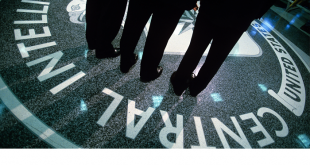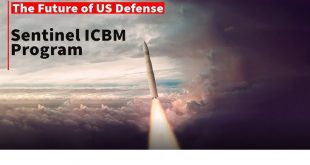On January 10, 2025, the US Department of Justice (DoJ) posted a $25 million reward (up from a paltry $15 million) for information leading to the arrest of “former” Venezuelan President Nicolas Maduro and associates, just as he was taking the oath of office in Caracas for his third term as President. Maduro had been indicted by the DoJ in March 2020 on a variety of drug charges, raising uncomfortable parallels to the fate of former Panamanian leader Manuel Noriega. The Maduro case underscores a broader issue: the selective application of international law by the United States, which undermines its credibility as a global leader.
Just one day earlier, with wide bipartisan support, the US House of Representatives passed the “Illegitimate Court Counteraction Act,” criticizing the International Criminal Court (ICC) for its indictment of Israeli Prime Minister Benjamin Netanyahu and associates. That act would impose strong sanctions against any individual or group helping the ICC to apprehend any resident of the US or any allied nation that is not party to the Rome Statute or a member of the ICC.
This blatant hypocrisy is entirely consistent with US policy that treats us and our allies as if we wear “white hats” while our rivals wear “black hats.” The good guys don’t have to follow the rules because of their inherent virtue and noble objectives. Of course, everybody believes themselves to be the “good guy,” and looking out for their country’s interests. Laws should be consistently enforced, and prosecutions should be based solely on violations of the law, whatever color hat they wear.
When the US lectures the world on how other countries must follow the “rule of law” or the “rules-based order,” it is important to acknowledge that this means the rule of *our* law. We don’t want to subject our citizens to “international law” as seen by the ICC, or the laws of other nations. Meanwhile, we prosecute foreign nationals and even sovereign leaders under US law as if they were subject to our jurisdiction. If we wish to maintain the little moral high ground we have left, we should conduct ourselves according to the same rules we hold others to. But as I have described at length elsewhere, American moral authority has all but evaporated.
Venezuela, the richest country in the hemisphere
By all rights, Venezuela should be the richest nation in the Western Hemisphere. From the amazing Caribbean beaches on Isla Margarita to the world’s largest crude oil reserves, a once thriving agricultural industry, and amazing natural wonders like the never-ending Catatumbo Lightning in the Lake Maracaibo basin, the natural advantages this country possesses are unrivaled. Despite this, Venezuela is now the center of perhaps the worst peacetime humanitarian crisis in modern history, after decades of government mismanagement and corruption combined with punitive US sanctions aimed at effectuating regime change in Caracas.
When I first visited Venezuela in 1997, the economy was booming, driven by foreign demand for high-quality Venezuelan crude oil. Shortly thereafter, Hugo Chávez was elected president on a platform of what he dubbed “21st century socialism.” His Bolivarian revolution nationalized agriculture, manufacturing, mining, and most importantly, the oil industry. He planned to use the profits from the lucrative oil business to fund social programs to help the nation’s impoverished masses, by providing them with food, water, housing, healthcare and improved infrastructure.
Chávez also provided low-cost oil to neighboring countries, through the Petrocaribe program, in an effort to spread his revolutionary ideology and challenge US dominance in the region. In 2005, he even started sending free heating oil to poor American households in The Bronx and elsewhere, both to enhance his own reputation as well as to taunt his geopolitical adversary.
By the time of his death in 2013, the per capita GDP was $12,455, one of the highest in South America, after which Nicolás Maduro took over the presidency and continued to move the country in the same anti-US revolutionary socialist direction.
The Maduro collapse: Socialist mismanagement, oil dependence, US sanctions.
The oil-dependent economy was fine until 2014, when a worldwide supply glut caused oil prices to crash from $107.95 a barrel in June 2014 to $44.08 by January 2015. With massively depleted profits from oil, the nationalized economy ceased to function, as did all the social welfare programs Chávez had set up to improve the lives of the poor. I don’t need to tell libertarians how bad planned economies are at adapting to a crisis, but what happened in Venezuela has been called “the single largest economic collapse outside of war,” leading to over 7.7 million Venezuelan refugees (20% of the population), the largest mass exodus in modern Latin American history.
By 2017, Venezuela was a mess, with economic chaos, widespread poverty, and even energy shortages. Maduro called elections for a new Constituent Assembly to draft a new, more authoritarian constitution for the country, leading the US to impose sanctions prohibiting transactions with the Venezuelan oil industry.
After Maduro won a contested presidential election in 2018, the opposition-controlled National Assembly declared its leader, Juan Guaidó, to be the legitimate president. The US, Organization of American States (OAS), and EU recognized Guaidó, and the Trump administration did its best to help the opposition overthrow Maduro and install Guaidó in Caracas.
John Bolton, who has famously said he has “helped plan coups d’état,” convinced Trump to block all Venezuelan assets and property in 2019, further exacerbating the effects of the oil market collapse, driving the nation’s oil revenue to plummet ten-fold between 2018 and 2020, with the country’s per capita GDP dropping to $2,624.41 by 2019, six times lower than when Maduro took office.
As if things were not bad enough, 2020 brought with it the Covid-19 pandemic, which was especially bad for Venezuela, as the health system was already in a near state of collapse. More than half of all medical professionals had fled the country during the economic crisis, protective equipment like masks, gloves and even soap were hard to find, and there were virtually no hospital beds, let alone ICU facilities.
The only positive thing for Venezuelans was that their extreme poverty and international isolation led to a relatively slow spread of the disease to and through their country, as the pandemic only compounded their economic isolation. By the end of 2020, there was widespread food insecurity, a lack of potable water, intermittent supplies of electricity, and an inflation rate that is best expressed with scientific notation.
Maduro’s continuation of Chávez’s centralized economic policies not only stifled free market innovation but also eroded individual freedoms, leaving citizens unable to adapt or thrive amidst this perfect storm of external pressures.
Historical Parallels: Noriega and Maduro
Just before the Covid pandemic shut down the world, on March 26, 2020, the US DoJ formally indicted Maduro and associates on a variety of charges related to narco-terrorism and conspiracy to import cocaine into the US. A $15 million reward was issued for information leading to his arrest and/or conviction.
Maduro’s indictment was eerily reminiscent of the February 1988 indictment of Panamanian leader Manuel Noriega, also for “conspiracy to import cocaine” among other associated crimes. Following this indictment, in December 1989, the US invaded Panama in Operation Just Cause, in an effort to arrest Noriega and bring him back to Miami to stand trial – ultimately leading to his incarceration until his death in 2017.
While heads of state generally have immunity from prosecution, in the case of Noriega, immunity was not accorded because “the US government had never recognized General Noriega (the de facto ruler of Panama) as the Head of State.” Maduro’s indictment refers to him as “former President of Venezuela,” no doubt for this very reason. Could the Covid pandemic have saved Maduro (temporarily?) from the same fate as Noriega?
The parallels between Noriega and Maduro highlight a recurring pattern in U.S. foreign policy – one where international law becomes a selective tool to target adversaries while shielding allies. This double standard not only undermines the integrity of the U.S.’s ‘rules-based order’ but also destabilizes the very regions it claims to help.
While US sanctions, indictments, and threats of military action have exacerbated Venezuela’s collapse, their human toll is best seen through personal stories, such as my work on the Maracaibo Aging Study.
Maracaibo Aging Study – a personal perspective
I mentioned above that I visited Venezuela for the first time in 1997. The purpose of that visit was to help set up the Maracaibo Aging Study, a family-based cohort study of healthy aging in two neighborhoods of Maracaibo, Venezuela. We charted the health of these communities for the last quarter-century, continuing our work throughout the collapse of their civil society. We started this project in Venezuela because they had a highly educated population, fantastic infrastructure for Latin America, and an enthusiastic team of collaborators at the University of Zulia and various medical clinics in the area.
With great enthusiasm from the community, we established a longitudinal project measuring such things as ambulatory blood pressure, brain MRI, ophthalmological exam, infectious diseases, blood chemistry and many more every 5 to 10 years as members of our cohort aged. That international collaboration led to many findings that have impacted the practice of medicine worldwide, and which would have been difficult to impossible to accomplish anywhere else. As a side-effect of this ongoing project, we were able to observe the health effects of the collapse of the Venezuelan economy and society directly because we continued to work there throughout the humanitarian catastrophe.
Our NIH-funded study is one of the few remaining joint projects bringing US and Venezuelan researchers together for the common good. Because we put in the effort to build trust within the community, our work has not been shut down, and patients continue to be eager to participate. The populations we work with have a more positive view of the US than most Venezuelans because of their positive experiences interacting with our team.
While our work is a rare bright light in the darkness of US-US-Venezuelan relations, politics is putting the future of our project in jeopardy. This past November, Texas Governor Greg Abbott signed an executive order GA 48, which prohibits any state employee, including members of the University of Texas system, from traveling for professional purposes to any country designated as a “foreign adversary,” including Venezuela. Given that my primary collaborators on the Maracaibo Aging Project are in the UT system, it is unclear whether our project will be allowed to continue. Just as President Trump’s 2017 travel ban ended US-North Korea civil engagement projects prematurely, Governor Abbott’s travel ban may prematurely curtail our good work in Venezuela as well.
The Maracaibo Aging Study exemplifies the potential of constructive engagement over punitive isolationist policies, showcasing the benefits of collaboration even amidst political tensions. This rare success in US-Venezuelan relations contrasts sharply with the broader failure of sanctions to achieve constructive outcomes.
Rules for thee but not for me
This brings us to the events of this past week, when Maduro was inaugurated for his third term as President of Venezuela, in response to which the US raised the reward for his capture to $25 million, a purely symbolic measure. With Trump returning to the White House next week, concerns of a possible Noriega-style operation loom once again.
Ironically, just a day before upping the ante on Maduro, the US House of Representatives bipartisanly passed the “Illegitimate Court Counteraction Act.” Because the US, like Israel, is not a party to the Rome Statute and is not a member of the International Criminal Court (ICC), we do not accept the idea that our citizens are subject to its jurisdiction. The recently passed bill would impose sanctions against anyone who has “directly engaged in or otherwise aided any effort by the International Criminal Court to investigate, arrest, detain, or prosecute” any lawful resident or citizen of the US or any ally of the US that is not party to the Rome Statute or a member of the ICC.
The US refused to sign the Rome Statute out of fear it could subject US servicemen and civilian leaders to the court’s jurisdiction. The American Servicemembers’ Protection Act of 2002 went so far as to authorize the use of US military force if needed to bring about the release of any US or allied personnel subjected to ICC prosecution.
This current bill is explicitly aimed at protecting Israeli Prime Minister Benjamin Netanyahu from prosecution after the ICC issued a warrant for his arrest in November. Meanwhile, the US has openly encouraged ICC prosecutions of Vladimir Putin and Kim Jong-Un, even though neither Russia nor the DPRK are themselves members of the ICC.
One day, the US shields an ally like Netanyahu from ICC prosecution; the next, it offers a $25 million bounty for an adversary like Maduro. Such double standards erode global trust in the US as a fair arbiter of justice, underscoring the urgent need for consistent enforcement of international law. This selective enforcement not only erodes trust in US leadership but also threatens the integrity of the international legal system itself.
Conclusion – more engagement, less hypocrisy
The US goes around the world lecturing others on the importance of the “rules-based order.” For international law to function and be worthy of respect, it must be applied consistently and fairly to all. “Equal justice under law” is the foundational principle of the US judicial system, and this standard must extend to the global stage if we are to conceive of any meaningful concept of international justice.
Unfortunately, in practice, the approach more often resembles “those with the weapons make the rules.” While it is reasonable to argue that nations not party to the Rome Statute, such as the US and Israel, should not be subject to ICC jurisdiction, that same logic must apply equally to non-signatories like Russia and North Korea. If heads of state are to be immune from prosecution abroad, then this immunity must be universal, applying equally to Nicolás Maduro, Vladimir Putin, and George W. Bush.
International law cannot be credible if the US and its allies remain beyond scrutiny while its adversaries face relentless prosecution. This double standard is akin to a judge in the US who refuses to sentence friends while harshly punishing foes – behavior that is universally condemned. The maxim “Do as I say, not as I do” cannot uphold a fair and legitimate rules-based order. As George W. Bush once remarked, you “can’t take the high horse and then claim the low road.” This unintentional wisdom remains painfully relevant today.
To reclaim its moral authority and lead by example, the US must embrace a rules-based order that applies universally. International law should not serve as a tool of convenience but as a consistent framework for justice, ensuring that fairness is not a privilege reserved for a select few but a right extended to all.
By: Joseph D. Terwilliger
Joseph D. Terwilliger is Professor of Neurobiology at Columbia University Irving Medical Center, where his research focuses on natural experiments in human genetic epidemiology. He is also active in science and sports diplomacy, having taught genetics at the Pyongyang University of Science and Technology, and accompanied Dennis Rodman on six “basketball diplomacy” trips to Asia since 2013.
 Tehran Institute For International Studies tiis
Tehran Institute For International Studies tiis



